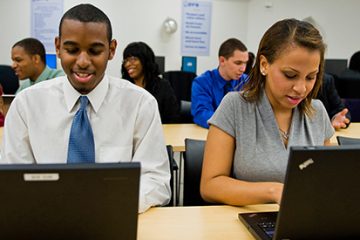Since an early age, Claire Fischer knew that she wanted to help save the world. In her junior high and high school years alone, she helped fundraise over $ 28,000 USD with her 30-hour famine approach for World Vision. Impressed by her fundraising achievements, Claire was chosen as a youth ambassador for World Vision and was sent to Zambia to see how the money she and her youth group was being used. It was during this trip to Zambia where she fell in love with Africa. Claire decided to graduate a semester early from high school and go back to Africa, this time volunteering with Projects Abroad. In February 2008, Claire landed in Ghana for what she thought would be three months and unprepared for what was truly going to be a life-changing experience.
In Ghana, Claire was to work with a government-run orphanage in the capital city of Accra for three months, but by the end of her first month, she had already telephoned her parents to say she would be staying longer. From waking up the children for school to babysitting the toddlers to playing soccer with the older boys, every day was action-packed, with only a few spare moments to write home the emails that would later become her blog. The more Claire worked at the orphanage and the closer she got to the children, she realized some dangerous problems. First, there was the overcrowding. It was simply impossible to provide 150 children with the appropriate emotional care and support they needed. Then there was bias against the older boys on behalf of the administration.
Although there was no age limit for how old the children could be and still live at the orphanage, the new administration was considering dismissing the older boys, boys who had nowhere and no one to turn to. Extending her stay in Ghana for one month, Claire plunged into a new project, Mawuli Apeme, a transitional group home for these boys. Working with the previous director of the orphanage, All Hands on Deck began to truly take form. The project was intended as a four-year program for high school boys. It would provide them not only with a home, but help them acquire the necessary life skills to navigate through life successfully. At the end of the program, the boys could choose whether to attend university (the program would offer partial scholarships) or take a job (in which case the project would help them with rent money). Six boys were carefully chosen to be the pioneers, all that was missing was the necessary capital.
After returning to Chicago, Claire began to plan some of the most intensive fundraising she had ever attempted (and even tried to register her own non-profit at seventeen), but first she had to take a step back and choose where to go to college. The flexibility of the programs, the emphasis on experiential learning and the co-op program brought her to Northeastern University. Upon arriving at Northeastern, Claire began her fundraiser. Operating from her dorm room and with the help of her parents, her old high school and her community, Claire fundraised over $65,000 USD. With the money in place, the project began to turn into a reality, and the boys moved into a house with their housefather just outside of Accra. Each boy was assigned $6 USD a day, $3 for food, $1 for medical emergencies, $1 for transport and $1 for their savings account (which they would be able to access at the end of the program). For a year and a half, Claire had placed blind faith in her partner back in Ghana, and in January 2010, she decided to have her co-op take her back to Ghana, where she finally saw with her own eyes the tangible results of her efforts.
Now a middler in International Affairs with minors in both Business and Social Entrepreneurship, Claire reflects on the opportunities she has had and how her time with the Social Enterprise Institute has helped her channel her passion and drive and consolidate her project: “My time with SEI is teaching me about how to move forward, picking apart and analyzing what makes other projects flourish or fail, and then apply it to my own”. Claire is currently a teaching assistant in Professor Shaughnessy’s Social Entrepreneurship class. The more she delves into the topics of social businesses and social entrepreneurship, the more she has realized the crossroads she now faces with her project: sustainability and replicability, a familiar challenge to many in the non-profit world. Reading about others who, like her are working to change the world, she says that she often wants to reach into the book and ask these social entrepreneurs how they pushed through all the obstacles and the difficult decisions, but she knows that at the end of the day, this work is about giving people the opportunities they deserve, it is about helping others help themselves.


